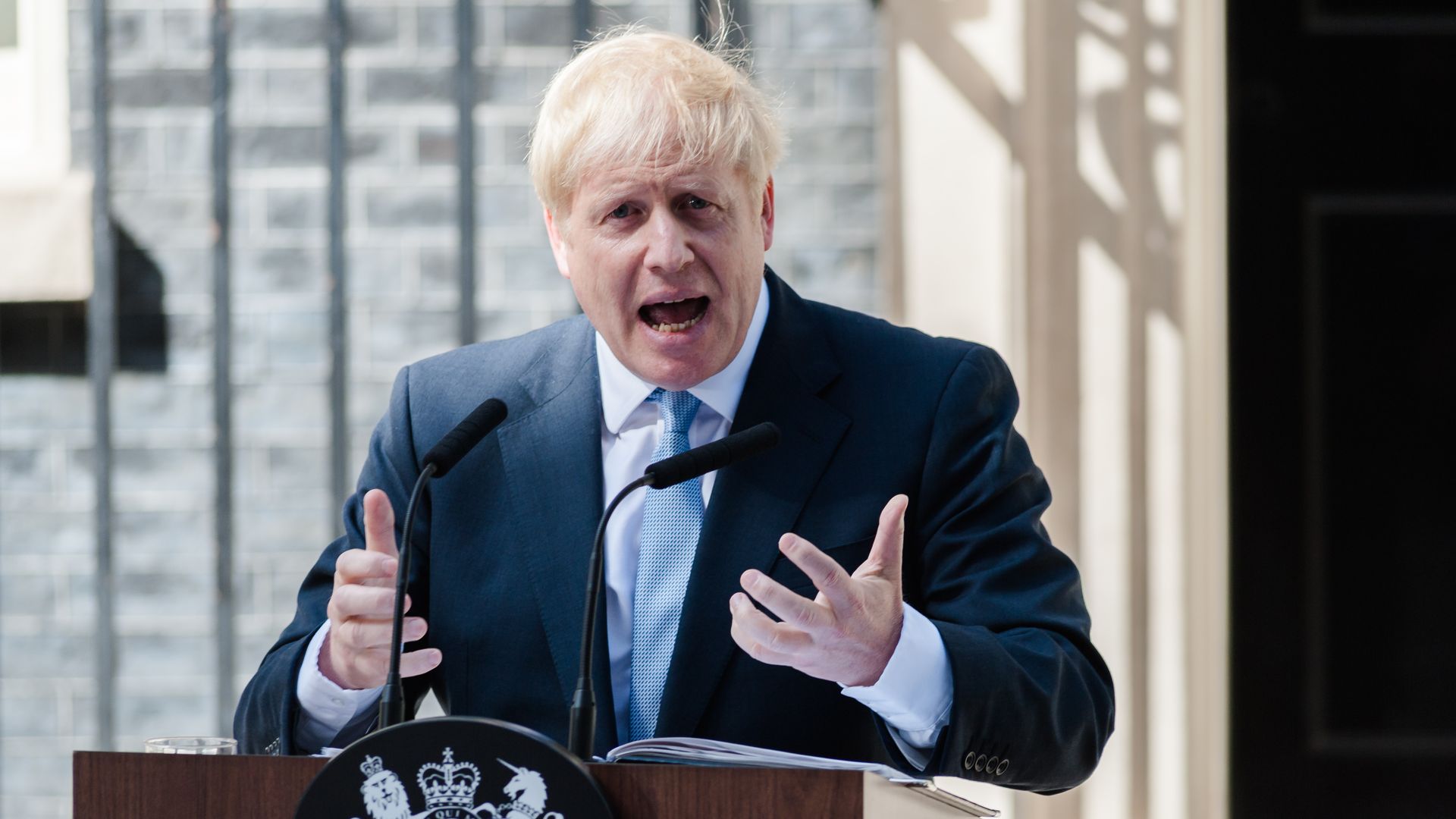Updated Sep 3, 2019 - World
Boris Johnson expected to call election if he loses Brexit vote
Add Axios as your preferred source to
see more of our stories on Google.

British Prime Minister Boris Johnson speaks outside his official residence at 10 Downing Street in London. Photo: WIktor Szymanowicz/NurPhoto via Getty Images
